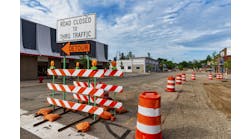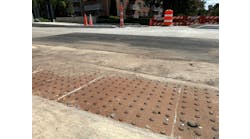The cost of construction materials jumped in March, even as the amount contractors charge to complete projects remained stagnant, according to an analysis of producer price index figures released April 12 by the Associated General Contractors of America. Association officials noted that the spike in materials prices continues despite relatively weak overall demand for construction, and cautioned that current market conditions could force some firms out of business.
“Price shocks for a number of key construction materials may have caught contractors by surprise in a period when overall inflation remained very moderate,” said Ken Simonson, the association’s chief economist. “Even though the increases are generally small compared to the high levels of last March, contractors have not been able to pass along these new costs, putting firms at risk of insolvency.”
Simonson cited increases in March for diesel fuel, up 3.5% for the month after rising 3% percent in February; gypsum products such as wallboard, up 2.2% after increasing 5.1% in February and 5.9% in January; and aluminum mill shapes, up 1.2% after a 1.9% rise the previous month, as particular problems. Overall, the producer price index for construction materials prices increased by 1.4% between February and March, following a rise of 0.9% from January to February.
Even as materials prices spiked in March, the amount contractors are able to charge for completed projects remained relatively flat, the construction economist added.
Association officials said construction firms have been coping with over four years of relatively weak market conditions, driven in particular by declining public-sector demand for construction and little demand for new housing construction. They added that conditions were being made more difficult because just as many stimulus and Base Realignment and Closure projects were wrapping up, Congress has failed to enact a number of long-term infrastructure investments programs for highway, transit, airport and water maintenance.
"Contractors are paying peak market prices for construction materials even as they charge bottom market prices to build new structures," said Stephen Sandherr, the association's chief executive officer. "Needless to say, many firms won't be doing much hiring if they have to continue to cope with higher costs, less income and little demand for work."


